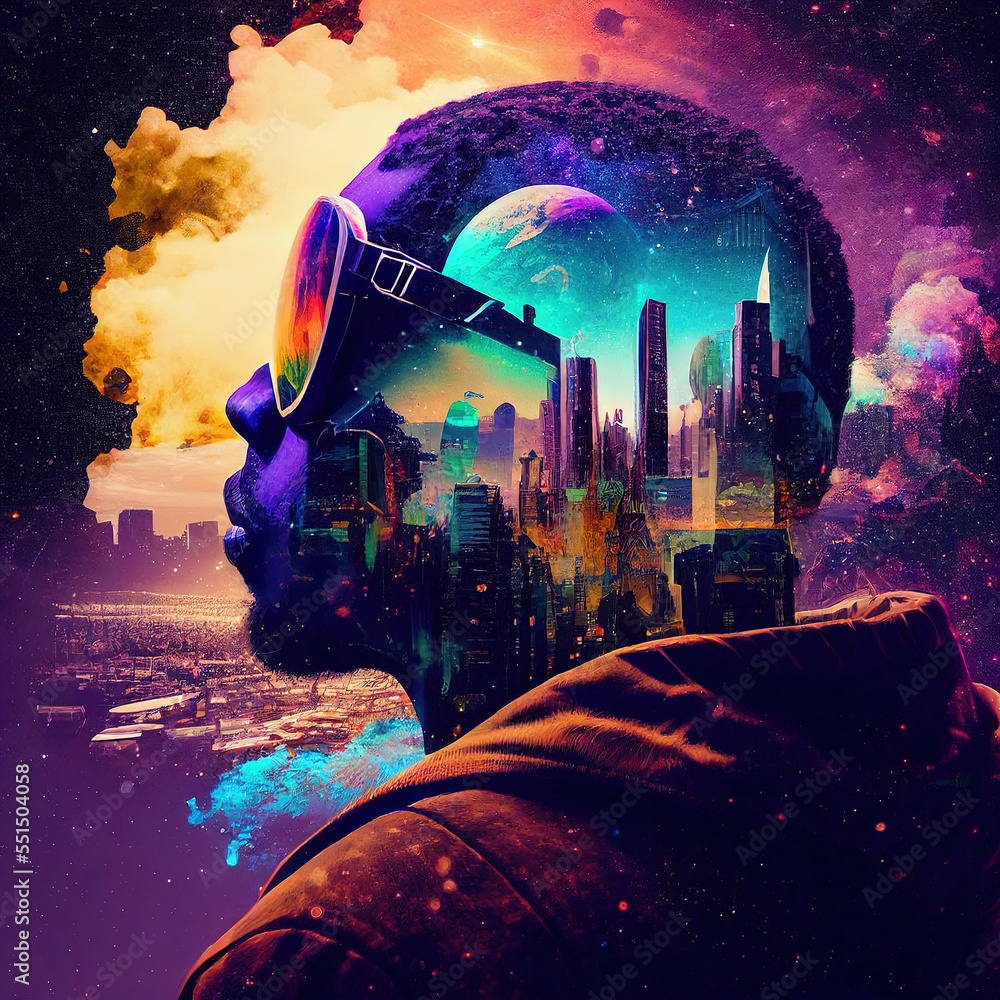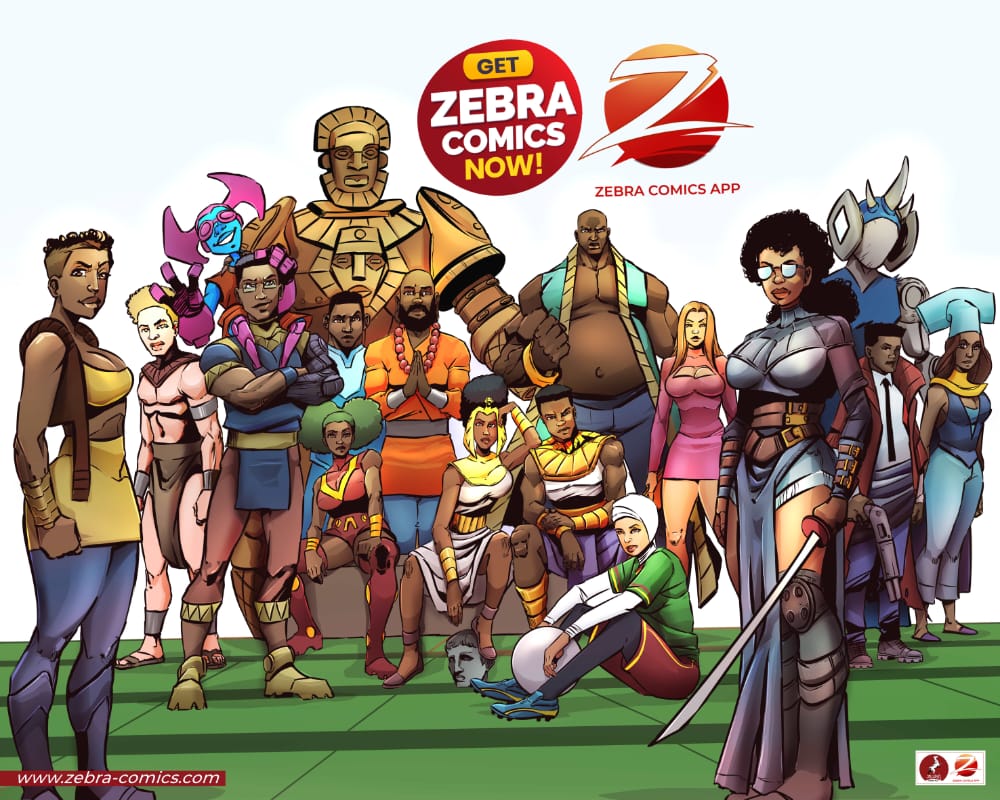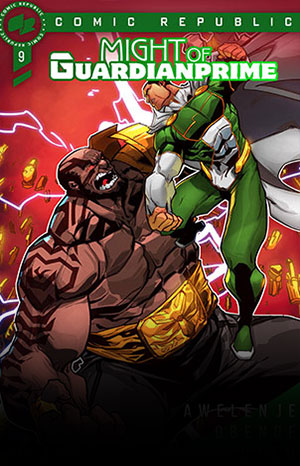Comics are a popular form of entertainment and storytelling that appeal to people of all ages and backgrounds. Comics can also be a powerful medium for conveying messages and values that can inspire and motivate readers. We will explore how children characters in African comics can serve as role models for young audiences and promote positive social change. But first…
What are African Comics?
African comics are comics that are created by African artists or that feature African themes, settings, and characters. African comics can be found in various formats, such as print, digital, and webtoon. Some examples of African comics are:
- Zebra Comics: A Cameroonian comic publishing company that produces comics for all ages. They have a platform where they publish digital comics. Some of their titles include Kawana, Njoku, Wrong Dial, Beasts of Tazeti and Anaki, just to name a few.
- Kugali Media: A platform that showcases comics and animation from across Africa and the diaspora. Some of their titles include Ndaw, Kokou, Nani, and Razorman.
- YouNeek Studios: A comic studio that creates stories inspired by African history, culture, and mythology. Some of their titles include E.X.O., Malika, WindMaker, and Iyanu.
- Comic Republic: A Nigerian comic studio that aims to create diverse and inclusive superheroes for Africa and the world. Some of their titles include Avonome, Guardian Prime, Eru, and Hero Kekere.
Why are Children Characters Important?

Children characters are important because they can represent the hopes, dreams, and challenges of young readers. Children characters can also help readers to relate to the stories and empathize with the characters. Children characters can also serve as role models for young readers by demonstrating positive traits and behaviours, such as courage, kindness, creativity, and resilience.
Role Models in African Comics
Children characters in African comics can be role models in various ways:
1. Showing diversity and representation
African comics often prioritize diverse and inclusive storytelling, featuring characters from different ethnicities, backgrounds, and abilities. By showcasing the diversity and richness of African cultures and identities, these comics challenge stereotypes and prejudices. For example, Comics Republic’s Hero Generation introduces readers to a group of teenagers from different ethnic groups in Nigeria who use their powers to fight crime and corruption, highlighting the strength of unity and collaboration.
2. Promoting social justice and activism
Comics are powerful tools for advocating social justice and inspiring activism. Young readers can be encouraged to take action by reading about issues affecting African communities and the world at large. For instance, Kugali’s Lake of Tears is a story of captivity and redemption told through the eyes of three teenagers who meet on Lake Volta. It is an ode to the plight of many children who are trafficked and forced to work in Ghana’s hazardous inland fishing industry, emphasizing the importance of tackling all actions that violate the rights of children through individual and collective action.
3. Creativity and innovation
Young readers are often inspired to explore their own talents and passions by African comics which celebrate creativity and innovation. Creating opportunities, thinking out of the box, and solving problems are the things they inspire readers to do. In YouNeek Studios’ Iyanu: Child of Wonder, the story follows Iyanu, a teenage orphan girl with no recollection of her past who suddenly discovers that she has hidden powers that rival the Divine Ones themselves. The story is set in a world that is inspired by the history, culture, and folklore of the Yoruba people. This creates a world that is familiar to young readers, yet new in many ways. Without a doubt, such creativity and innovation will inspire them to do the same. Or raise the bar.
4. Overcoming adversity and challenges
Children can learn resilience and determination from African comics by seeing characters who face adversity and challenges head-on. These characters demonstrate the importance of perseverance and provide valuable lessons on coping with difficulties. These comic book characters embody resilience and determination, showing that setbacks and obstacles can be overcome. Through their stories, young readers learn the importance of resilience, courage, and perseverance. They see that it is okay to make mistakes, as long as they learn from them and grow stronger. Zebra Comics’s Beasts of Tazeti, a young boy goes through several challenges in order to redeem his father’s name, offering young readers a source of inspiration and guidance when navigating their own struggles.
5. Promoting Education and Intellectual Curiosity
African comics often integrate educational elements, imparting knowledge and fostering intellectual curiosity among young readers. Children characters in these comics engage in adventures that involve history, science, culture, and more. They inspire young readers to explore and learn about the world around them. By combining entertainment with education, African comics encourage a love for learning and expand young readers’ horizons.
6. Building Strong Moral Values
Children characters in African comics serve as moral compasses, teaching young readers important values and principles. They demonstrate honesty, integrity, respect, and compassion in their interactions with others. These characters make choices that align with their values, inspiring young readers to do the same. Through their actions, children characters in African comics help shape the moral compasses of young readers, guiding them towards becoming responsible and ethical individuals.
Conclusion
Children characters are important because they can represent the hopes, dreams, and challenges of young readers. Children characters can also help readers to relate to the stories and empathize with the characters. They can provide a sense of identification and inspiration, showing young readers that they, too, can be heroes and make a positive impact in the world.

As the African comics industry continues to evolve, it is crucial to support and uplift the voices of African comic book creators. By doing so, we can foster a vibrant and diverse comic culture that reflects the rich tapestry of African experiences and inspires generations to come. African comics have the power to shape the future and tell stories that resonate with readers around the world.



